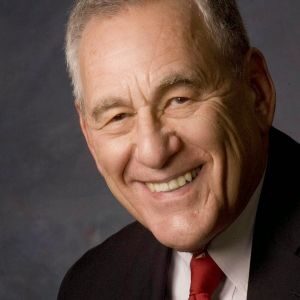Just a few months ago, almost nobody talked about the Strait of Hormuz, much less worried about its effect on our lives. Now, Iran threatens to close that narrow stretch of water in the Middle East. It’s the latest move in a growing international conflict over Iran’s possible development of a nuclear weapon.
If the Strait is closed, the world could lose as much as one-fifth of its oil supply.
Since the 1970s, the United States has worried about the security of its oil supply and its dependence on the politically volatile Middle East. Because of the dangers in the Israeli-Arab conflict, the U.S. has tried to reduce dependence on Middle East oil.
That concern has filtered down to Maine, the state with the highest percentage of homes heated by oil – 70 percent according to the U.S. Census. The state has its own Office of Energy Independence and Security, and state law targets a 50 percent reduction by 2050 from oil dependence levels of 2007.
For both America and Maine, complete freedom from dependence on others for energy fuels is impossible. The United States, with about five percent of the world’s population, consumes about 25 percent of the world’s energy supply. The country does not have energy resources readily available to meet that level of demand.
Maine’s oil reduction target probably can be achieved. Progress has already been made: In 2009, Maine used 14 percent less oil, mainly for cars and home heating, than it had in 2000, although annual differences in weather conditions may explain a part of that decline.
In turning away from imported oil, it is inevitable that the alternatives will impose higher costs, either financial or environmental or both. Only increased efficiency – making the same amount of fuel do more – offers any likelihood that such costs may be avoided.
Take domestic oil. Major American companies want to be allowed to drill for more oil offshore and in Alaska, raising concerns about possible oil spills in the Gulf of Mexico or off Alaska, with the BP disaster and the Exxon Valdez spill still fresh in memory. And public land now protected from development in Alaska would have to be used.
Canada offers major supplies from its oil sands, but people in the Midwest worry about pipeline ruptures and the potentially damaging effects of the heavy oil. Environmentalists don’t like tapping the oil sands, though Canada plans to continue developing them with the oil being shipped to China if the U.S. rejects it.
The principal alternatives to oil are coal and natural gas. “Clean coal” remains an elusive target and drawing new supplies of underground natural gas depends on hydraulic fracturing, called fracking. Opponents point to the possible pollution of drinking water by the process. Developers fight environmental safeguards that could reduce profits.
Absent environmental concerns, domestic supplies of coal and natural gas would probably be sufficient to move the country reasonably close to independence. But ignoring those concerns could pose major threats to public health.
Then, there are renewable resources that can reduce dependence on outside supplies because they never run out. And we are gradually learning how better to develop some of them.
However, in Maine and elsewhere, hydropower, the renewable resource that offers the greatest potential, is being taken off the table. Across the country, dams used for electric generation are being dismantled to promote fish passage and recreation.
Wind and solar have limited potential for power production, but they could help. Yet wind power runs into serious problems when its installations create unwanted noise or destroy scenic vistas. Both wind and solar won’t realize their potential until better power storage is developed to help smooth out the lack of reliable availability from either. Because of their locations, these resources are more expensive than might be expected, because they often require costly new transmission lines.
With both the Middle East situation and the presidential campaign heating up, energy issues will be hotly debated in coming months. To reduce dependence on countries using oil as a political lever against the United States, the choice will involve decisions about fracking, oil sands, off-shore drilling, wind power, pipelines, transmission lines, and even low-wattage light bulbs.
In Maine, the use of natural gas is climbing rapidly, and that could produce economic benefit unless taxpayer subsidies or higher rates drive up the bill. Much-vaunted wind power arouses sharp debate and imposes high costs for equipment and transmission lines.
Energy issues are among the most important this year, and the arguments will all be about cost – political, financial and environmental.







